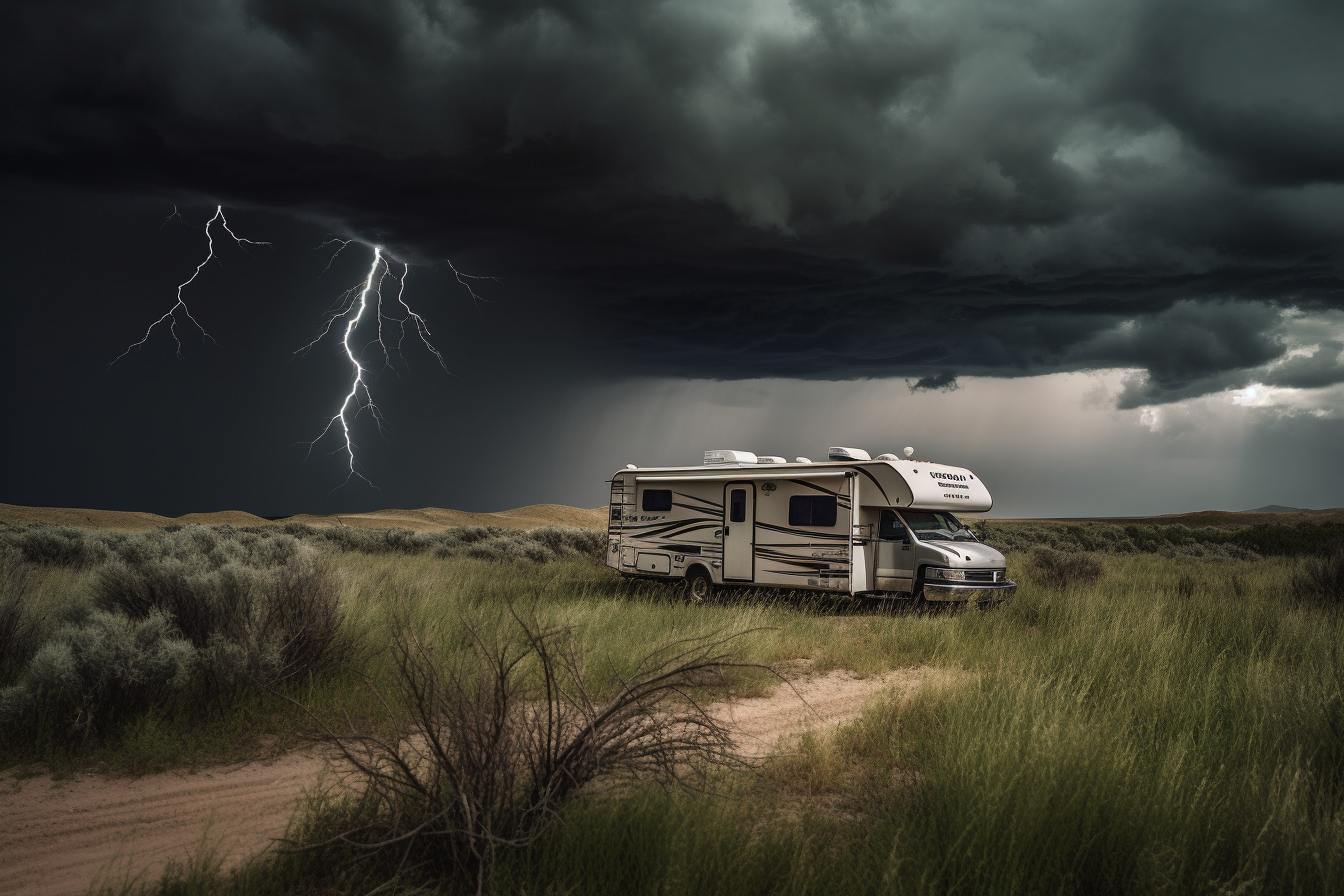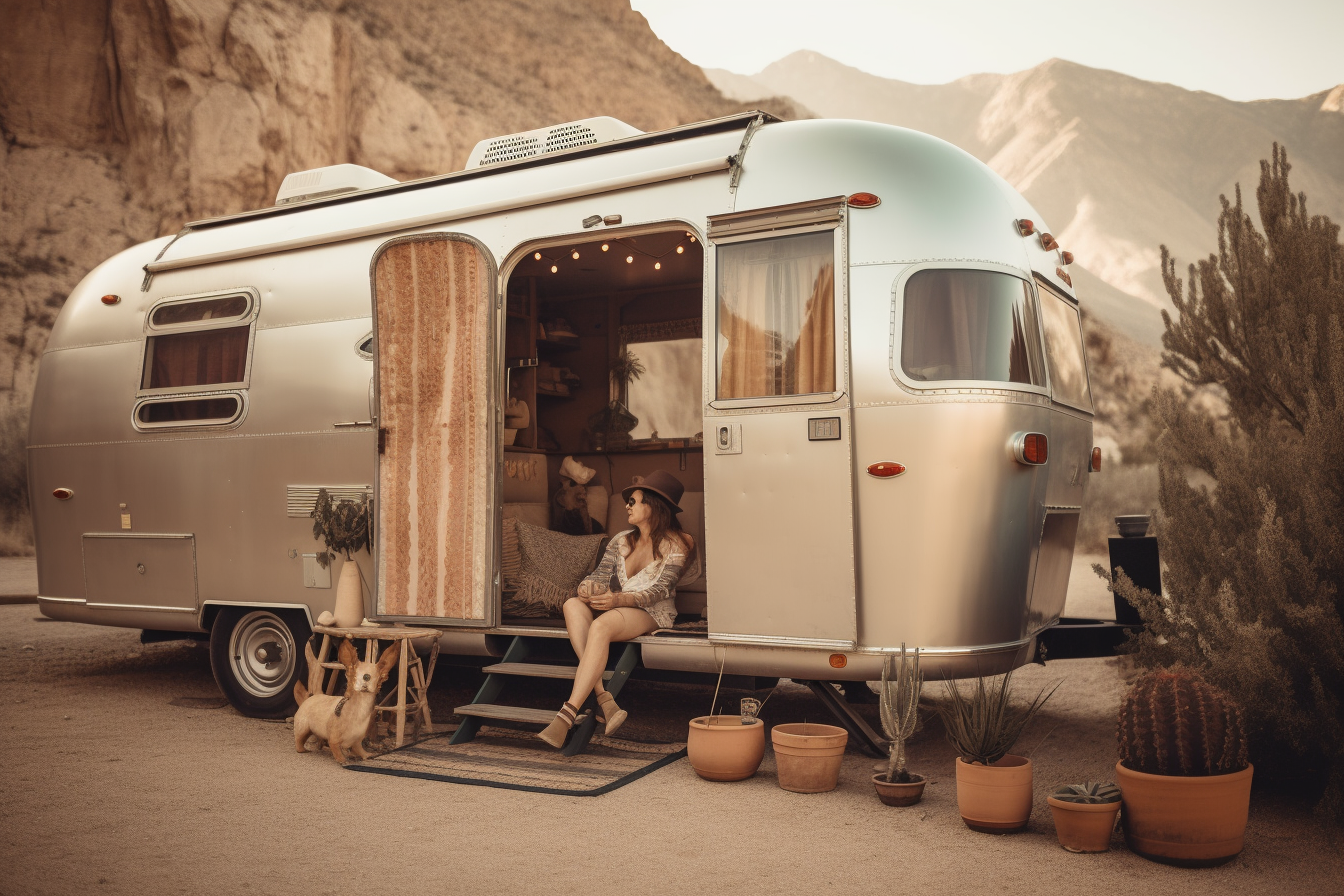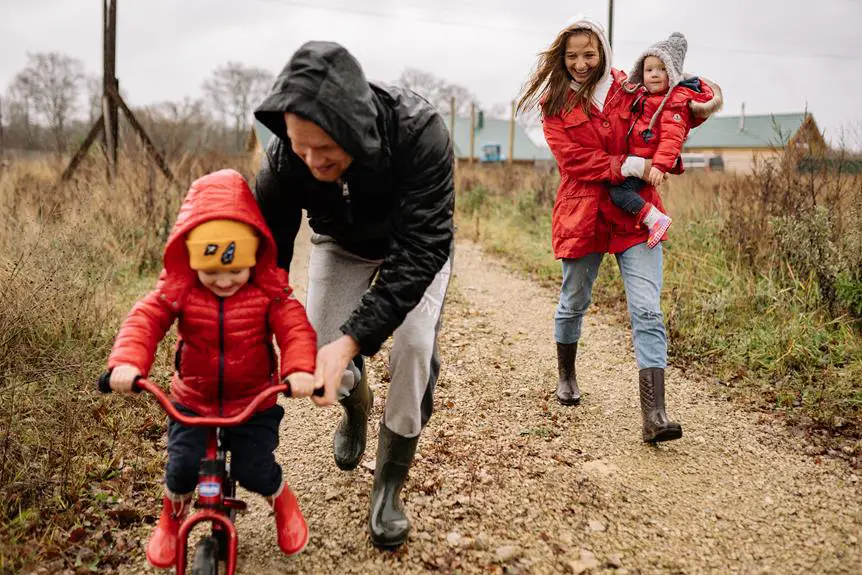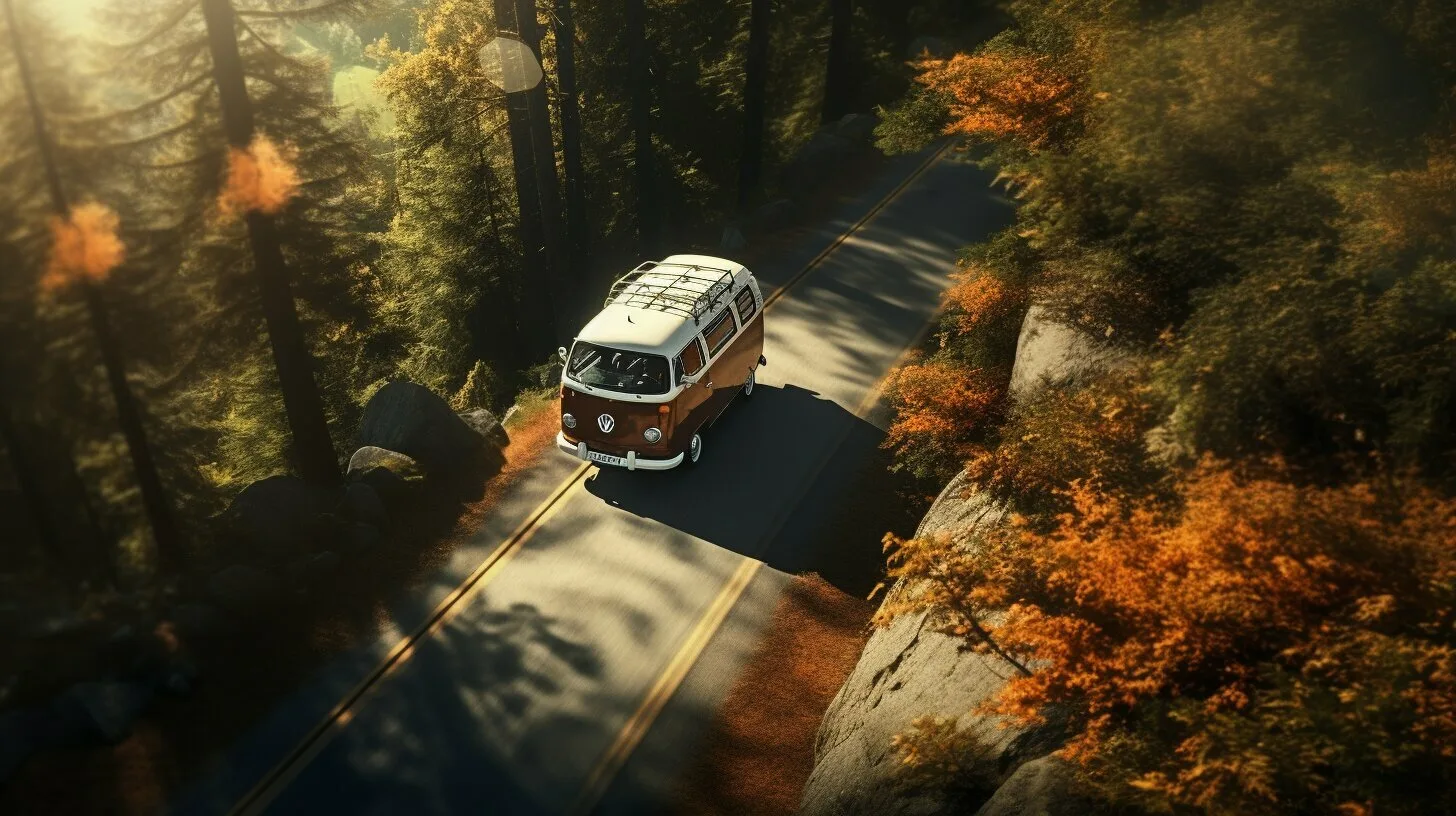Living in an RV can seem like a dream come true for those seeking adventure and flexibility. However, there are also significant risks and dangers associated with this lifestyle. From fire hazards to limited living space and clutter, there are several factors to consider before embarking on this lifestyle.
One of the most significant dangers of living in an RV is the risk of fire. With limited space and multiple appliances running simultaneously, the chances of a fire breaking out are much higher than in a traditional home. Additionally, carbon monoxide poisoning is also a significant risk, as RVs are often poorly ventilated and can quickly fill with toxic gases. It’s crucial to understand these risks and take necessary precautions to ensure your safety while living in an RV.
What are The Dangers of Living in an RV?
Fire Hazards and Prevention Measures
You gotta be careful when it comes to fire hazards in your home on wheels. Make sure you’re taking the necessary steps to prevent any potential flames from spreading. RVs are particularly susceptible to fires since they contain propane tanks, gasoline, and electrical wiring. This combination can be explosive if not handled with care.
To prevent fires, it’s important to inspect your RV’s propane tanks and hoses regularly. Make sure there are no leaks or damage that could cause a spark. Additionally, always turn off propane appliances when you’re not using them, and never leave them unattended. It’s also a good idea to have smoke detectors and fire extinguishers on hand and to create a fire evacuation plan with your family. By taking these precautions, you can help ensure that your RV remains a safe and enjoyable place to call home.
Carbon Monoxide Poisoning Risks
The risk of carbon monoxide poisoning increases in an RV. Carbon monoxide is a colorless, odorless gas that can be deadly if inhaled in high concentrations. RVs can easily accumulate carbon monoxide if they are not properly ventilated. This is especially true when RVs are parked in enclosed spaces or have engines running for long periods.
To prevent carbon monoxide poisoning in an RV, it is vital to install carbon monoxide detectors and regularly test them to ensure they are functioning properly. It is also important to have proper ventilation in the RV, especially when using gas appliances or generators. In addition, it is important to avoid running the engine or generator while sleeping or parking the RV in enclosed spaces.
By taking these precautions, RVers can greatly reduce their risk of carbon monoxide poisoning and enjoy their travels with peace of mind.
Poor Diet and overindulging in alcohol
Living on the road presents unique challenges for maintaining a healthy diet and lifestyle. The freedom to travel and explore different destinations can make it tempting to indulge in alcohol and unhealthy food options. However, this can lead to various health dangers that can be particularly difficult to manage while on the road.
Poor nutrition and excessive drinking are common problems that can arise while enjoying the RV lifestyle. Overindulging in unhealthy foods and drinks can lead to weight gain, high blood pressure, and other health issues. Additionally, with limited access to healthcare in some areas, managing these health problems may be more challenging.
To avoid these dangers, it’s essential to plan ahead for healthy meal options and limit alcohol consumption. Incorporating fresh and wholesome foods is a great way to maintain good nutrition while on the road. Farmers’ markets can offer an opportunity to enjoy locally sourced produce and other healthy options.
It is important to keep in mind the health dangers that come with overindulgence in alcohol. Limiting alcohol consumption can help prevent various health risks such as liver disease, high blood pressure, and other health issues. Always include plenty of water along with your spirits.
Exposure to Extreme Weather Conditions
Exposure to extreme weather can pose challenges for those residing in recreational vehicles. RVs are not built to withstand extreme weather conditions such as hurricanes, tornadoes, or blizzards. In case of extreme weather warnings, it is important for RV dwellers to have a plan in place to evacuate to a safe location.
Even during normal weather conditions, the temperature inside an RV can be uncomfortable due to poor insulation. During summer months, an RV can become unbearably hot, while during winter months, it can become too cold. This can lead to health problems such as heat stroke or hypothermia.
It is important for RV dwellers to take necessary measures to regulate the temperature inside their RV by using proper ventilation and insulation techniques. Additionally, it is crucial to stay updated on weather forecasts and prepare accordingly to avoid any risks or dangers associated with extreme weather conditions.
Security Concerns and Safety Precautions
You must be aware of potential security risks and take safety precautions when living in a recreational vehicle. One of the main concerns is theft. RVs are often targeted by thieves because they are seen as easy targets. It’s important to always lock your RV when you leave, even if it’s just for a short amount of time. You should also consider investing in an alarm system or security camera to deter potential thieves. Another safety precaution is to avoid parking in isolated or unsafe areas. It’s best to park in well-lit, populated areas, or in RV parks that have security measures in place.
Another security concern is personal safety. It’s important to be aware of your surroundings and trust your instincts. It’s best to leave the area if you feel uncomfortable or unsafe. It’s also important to have a plan in case of an emergency. Make sure you have a working phone and know the location of the nearest hospital or police station. Additionally, you should always inform someone of your whereabouts and travel plans. By taking these safety precautions, you can enjoy the freedom and flexibility of RV living without compromising your security.
Frequently Asked Questions
What are the legal requirements for living in an RV?
Living in an RV can be an exciting and unique experience, but it’s important to understand the legal requirements before making it your permanent home. Depending on where you plan to park, you may need to obtain permits or adhere to local zoning laws.
Additionally, many states require RVs to be registered and insured, just like any other vehicle. It’s also important to consider the amenities you’ll need, such as access to water and sewage disposal. Overall, it’s crucial to do your research and ensure that you’re following all necessary regulations to avoid any legal issues down the road.
How do you deal with waste and sewage management while living in an RV?
Living in an RV comes with its own set of challenges, and waste and sewage management is definitely one of them. When it comes to dealing with these issues, there are a few things you can do. First, make sure you have a reliable sewage system in place. This may mean investing in a composting toilet or installing a holding tank.
You’ll also want to make sure you dispose of your waste properly, following local regulations and guidelines. Remember, proper waste and sewage management is not only important for the environment but also for the overall health and safety of those living in the RV.
What are the most common maintenance issues that RV owners face?
RV owners often face a range of maintenance issues. One of the most common is problems with the plumbing system, including leaks and clogs. Electrical problems can also be a headache, with issues arising from the battery, wiring, and appliances. Structural issues can include roof leaks, windows that don’t seal properly, and insulation problems. Tire blowouts and other issues related to the vehicle’s mechanical systems can also be a concern. Regular maintenance and inspections can help prevent these issues from becoming major problems, but they are an inevitable part of owning an RV.
How do you find suitable places to park and live in an RV?
When it comes to finding suitable places to park and live in an RV, there are a few things to consider. First, look for RV parks or campgrounds that offer hookups for water, electricity, and sewage. Some may also offer amenities such as laundry facilities and WiFi. Another option is to boondock or dry camp, which involves parking in a remote location without any hookups.
However, it’s important to research local laws and regulations before doing so. Additionally, consider joining RV clubs or online communities for recommendations on safe and reliable places to park. Overall, with some careful planning and research, finding suitable places to park and live in an RV can be a rewarding and enjoyable experience.
What are some tips for maintaining a healthy and active lifestyle while living in an RV?
Maintaining a healthy and active lifestyle while living in an RV can be a challenge, but it’s definitely doable with a few simple tips. One important thing to keep in mind is to make sure you have enough space to move around and exercise. You can also take advantage of the great outdoors by going for hikes or bike rides, and finding parks or campgrounds with recreational activities.
Another key to staying healthy while living in an RV is to make sure you have access to fresh, healthy food. Try to cook your own meals as much as possible and stock up on healthy snacks like fruits and vegetables. Finally, don’t forget to take breaks and rest when needed, as RV living can be both physically and mentally demanding.
Conclusion
In conclusion, living in an RV can be a wonderful and adventurous experience, but it’s important to be aware of the potential dangers that come with it. By taking the necessary precautions and staying informed, you can avoid these risks and enjoy all the benefits that RV living has to offer. So, hit the road with confidence and enjoy the ride!







